Mar
07
with Nick Hornby, Ed Park, Sheila Heti, Gabrielle Bell, Amanda Filipacchi & Dawn of Midi
Thu March 7th, 2013
7:30PM
Main Space
Minimum Age: All Ages
Doors Open: 7:00PM
Show Time: 7:30PM
Event Ticket: $10
Day of Show: $12
happy hour
*Buy an advance ticket and receive a copy of Believer’s 10 Year Anniversary issue at the door*
Hosted by Believer editor Heidi Julavits
and featuring:
-Reading by Believer columnist Nick Hornby
-Multimedia presentation on Borgesian principles in children’s literature by Believer founding editor Ed Park
-Live Believer interview with Sheila Heti, Gabrielle Bell, and Amanda Filipacchi.
-Full dance set by Dawn of Midi
This is a general admission, standing event. Happy hour from 7-8pm including $3 beer and $5 well drinks.
1
The Believer 10th anniversary party

The Believer is a monthly magazine where length is no object. There are book reviews that are not necessarily timely, and that are very often very long. There are interviews that are also very long. We will focus on writers and books we like. We will give people and books the benefit of the doubt. The working title of this magazine was The Optimist.
Nick Hornby

Nick Hornby is the author of six novels, the most recent of which is Juliet, Naked, and a memoir, Fever Pitch. He is also the author of Songbook, a finalist for a National Book Critics Circle Award for music criticism, and editor of the short-story collection Speaking with the Angel. His screenplay for An Education was nominated for an Academy Award. He lives in North London.
photo credit: Sigrid Estrada
Ed Park
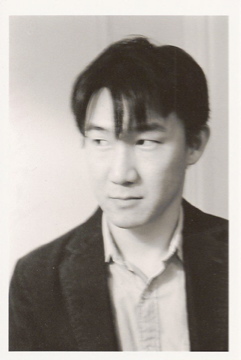
Ed Park was born in Buffalo, New York, in 1970. He is a founding editor of The Believer and the former editor of the Voice Literary Supplement, and has worked as an editor at the Poetry Foundation. His articles, essays, and reviews have appeared in The New York Times, Bookforum, and other publications. From 2007 to 2011, he wrote a science fiction column, Astral Weeks, for the Los Angeles Times. He should not waste time by blogging at Disambiguation, tweeting @ThaRealEdPark, and replenishing the shelves of the Invisible Library. At least he can no longer be said to publish the New-York Ghost.
Sheila Heti
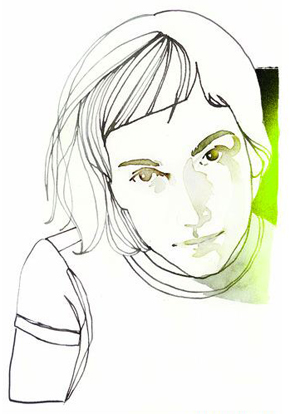
http://www.sheilaheti.net/
photo credit: illustration by Tina Berning for the New York Times
Gabrielle Bell
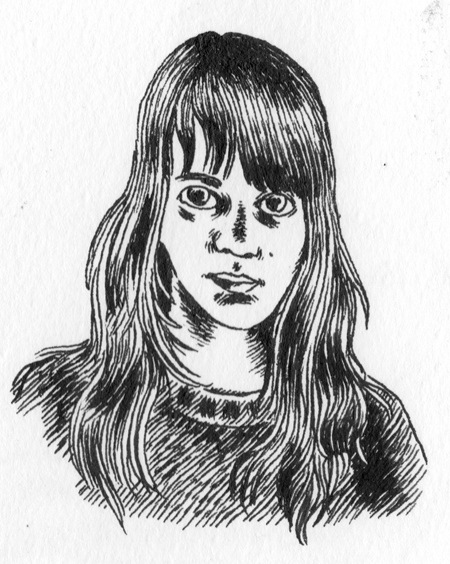
Gabrielle Bell was born in England and raised in California. In 1998 She began to collect her “Book of” miniseries (Book of Sleep, Book of Insomnia, Book of Black, etc), which resulted in When I’m Old and Other Stories, published by Alternative Comics. In 2001 she moved to New York and released her autobiographical series Lucky, published by Drawn and Quarterly. Her work has been selected for the 2007, 2009 and 2010 Best American Comics and the Yale Anthology of Graphic Fiction, and she has contributed to McSweeneys, Bookforum, The Believer, and Vice Magazine. The title story of Bell’s book, “Cecil and Jordan in New York” has been adapted for the film anthology Tokyo! by Michel Gondry. Her latest book, The Voyeurs, is available from Uncivilized Books. She lives in Brooklyn, New York.
Amanda Filipacchi
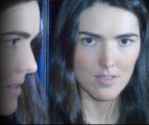
Dawn of Midi
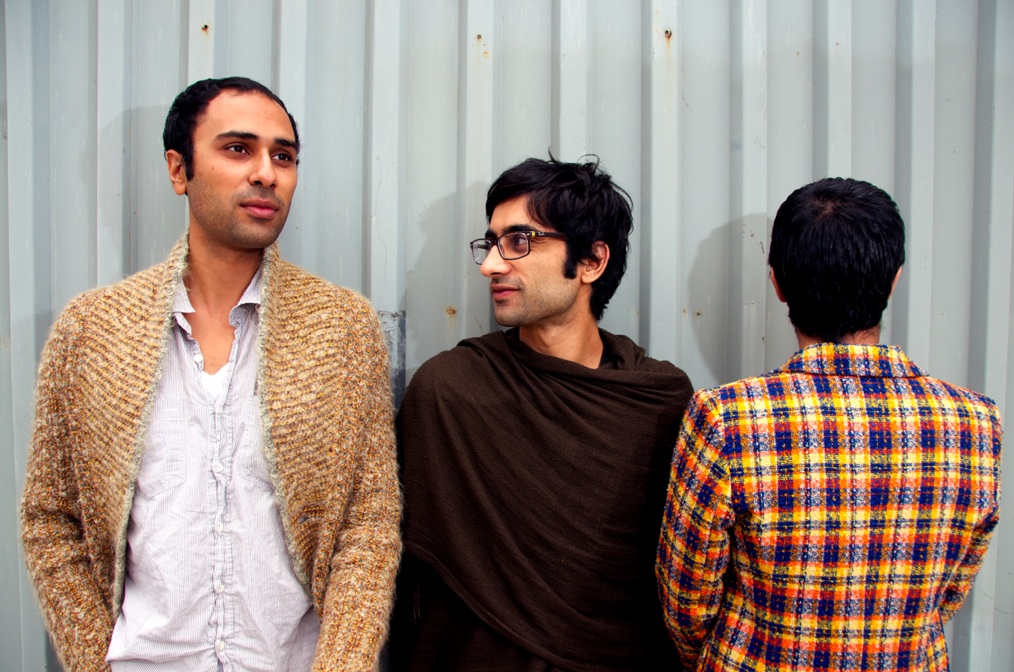
Listenable and insane. That’s the sound Dawn of Midi spent years shaping, culminating in their most mesmerizing work yet: Dysnomia.
In many ways, it’s the first record that truly reflects the trio’s critically acclaimed live show, a test of endurance and trust that involves bassist Aakaash Israni, pianist Amino Belyamani and percussionist Qasim Naqvi performing their compositions note-for-note without ever appearing the least bit predictable. If anything, Dawn of Midi’s sets are as red-blooded and rhythmic as a seamlessly mixed DJ set, casting spells on crowds in the same way the group’s favorite experimental and electronic acts have for decades.
Which explains why The New Yorker‘s music critic, Sasha Frere-Jones, wrote “an hour flew by in what seems like minutes” after witnessing their high-wire act last year, and Radiolab host Jad Abumrad added “[I’ve] seriously never seen anything like these guys.”
Belyamani is quick to say that Dawn of Midi have followed their own internal logic since day one, largely thanks to the fact that they were friends first—playing late-night tennis matches in dimly lit parking lots well before they stepped into a studio or rehearsal space. As such, Belyamani admits its taken quite some time to shift from early improv sessions to the well-oiled machine that makes Dysnomia both a dizzying dance record and a deeply immersive living room listen.
“Playing a locked groove like we do on this record involves a lot of discipline and hard work,” he explains. “You don’t start out that way unless you’re a group of folk musicians from the same village.”
Forget being from the same village; Dawn of Midi’s respective families aren’t even from the same country. Belyamani was born in Morocco, where he “grew up in a culture where people do polyrhythms in their sleep.” A stateside move didn’t happen until he turned 18 and decided to study abroad at CalArts. Meanwhile, Israni relocated from India to Southern California when he was just four months old, and Naqvi’s parents left Pakistan before he was born in Connecticut.
“Both my parents are major music fans,” says Naqvi. “They love old Hindi songs from the black and white film era, and different kinds of traditional music from the South Asian subcontinent. So that stuff has definitely filtered through me somehow, but scales and rhythms from that part of the world are not something that are central to my musical thinking. At least not yet.”
That’s the thing about Dawn of Midi now that they’re based in Brooklyn and touring open-minded markets worldwide: As carefully cultivated as their aesthetic is, it’s also been known to incorporate, willfully and otherwise, such wildly divergent influences and interests as Aphex Twin, the Police, Can and Ms. Pac-Man. And when they really fall for a record—like they did with Dr. K. Gyasi after hearing his highlife hooks in Berlin—it quickly raises the bar of what they want from their own music.
Hence how Dysnomia ended up being recorded, mixed and mastered in its entirety twice. As Israni explains, “Late one night, I realized the record we had just made wasn’t the quantum leap we needed, so we started over. Then it was another year and a half of rehearsing and composing before we could go in the studio again.”
It shows. While the original version was semi-improvised like the trio’s critically acclaimed debut (2010′s First), the final 46-minute cut is a brooding balancing act between a fascination with structure and a desire to create their own definition of dance music. Set aside an hour to experience the multi-movement title track in full and you’ll hear what we mean, as a language only Dawn of Midi truly understands locks into one long, seemingly endless groove and mixer Rusty Santos (Animal Collective, Owen Pallett, DJ Rashad) makes sure every last high-wire hook hits you square in the chest, even the quiet parts.
“It’s interesting with this piece,” says Naqvi. “There’s actual music in the silences. You could almost take the negative space and make something completely different with it.”
“The spaces between the dialogues of the notes are filled in by the body of the listener,” adds Israni, “and they complete the circuit, leaving one option—to dance.”
Dysnomia is out August 6th, 2013 on Thirsty Ear Recordings.

